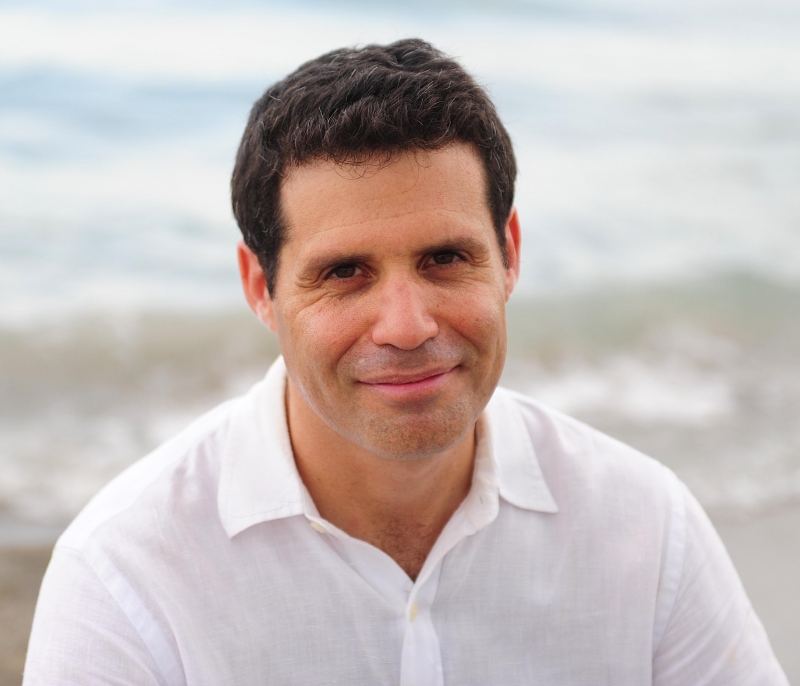Imagining the Worst-Case Scenario
Imagining the Worst-Case Scenario

As I was impatiently waiting for Hurricane Dorian to choose its final path, I read the weekly portion, Shoftim, in preparation for the following Shabbat’s sermon. With the storm and its potentially devastating outcome in mind, the ancient text presented itself in a
new light.
The end of Shoftim talks about a situation in which a slain person was discovered in a field and the murderer could not be found. The Torah does not simply file it as a “cold case” hoping for some future detectives to solve the crime. Instead, the Torah presents a seemingly peculiar ritual: The elders and magistrates of the town closest to the location of the victim break the neck of a young heifer, wash their hands over its body and declare: “Our hands did not shed this blood, nor did our eyes see it done.”
This ritual is the origin of the idiom “wash one’s hands,” which means to absolve oneself of responsibility. The rabbis in the Talmud explain that no one suspects that the leaders commit the murder. By washing their hands, they convey that they are not only legally innocent but morally as well. They affirm that there was nothing they could have done to prevent this crime. For example, they testify that they did not see the victim about to leave their city in the dark without warning him of the danger and offering him shelter for the night. It seems that the Torah is more concerned about their moral responsibility than their judicial responsibility.
When it seemed like the hurricane was heading our way, most of us acted responsibly. We left work early (which was exceedingly inconvenient that day), put up the shutters, and filled the cars with gas. Now imagine, that on your 11th trip to Publix to load up on more batteries and snacks, you noticed that the house down the road doesn’t have shutters on its non-impact-glass windows. It gets you mad. You cannot decide if that house’s residents are arrogant, cocky, careless, or all of the above. On your way back from the store you consider for a second to stop by and see if they need help, but quickly decide against it. After all, they are probably binge-watching Netflix and eating undeserved snacks; exactly what you were planning to do in your fortified castle.
However, before you open your bag of chips and ask your kids for the Netflix password, I want to reintroduce the concept of “pre-mortem”, imagining the worst-case scenario resulted from your actions or the lack of them. Assume that Dorian did hit and the people in the unprotected house got hurt. How would you feel then? Would you be able to wash your hands of it, feeling neither guilt nor responsibility? Afterall, you took care of your own family and even helped your in-laws. You are not in charge of the whole neighborhood’s safety…right?
Or you may think, if I only knew that the residents were not lazy, but an elderly couple who were too embarrassed to ask for help; or they were a family who just moved to Florida and didn’t really understand what to do with the metal pieces in their garage (just like you didn’t 10 years ago); or perhaps, the person in the house who normally takes care of its hurricane preparation was ill? Would you feel bad for not calling Paul and Howard with whom you could have done the job in less time than it took you to watch one episode of Breaking Bad, or are you going to be fine with your decision?
The Torah knew that after a person is murdered there is nothing to do to reverse it, but it wanted to help us avoid regret after the fact. When we witness a potentially dangerous situation, it is easy to rationalize why we should not get involved, and therefore this is exactly when we must honestly ask ourselves if we would be able to wash our hands of it should a disaster strikes. A human court may acquit us from moral responsibility, but on Yom Kippur we are standing before the heavenly court and we must be prepared.
Sat, May 4 2024
26 Nisan 5784
Upcoming Events
-
Sunday ,
MayMay 5 , 2024JAMTY CAFE
Sunday, May 5th 9:00a to 9:30a
-
Sunday ,
MayMay 5 , 2024Yom Hashoah Breakfast
Sunday, May 5th 9:00a to 11:00a
-
Sunday ,
MayMay 5 , 2024Last Day of HaMakom Religious School
Sunday, May 5th 9:30a to 1:00p
-
Sunday ,
MayMay 5 , 2024Religious School Pre-K Class
Sunday, May 5th 9:30a to 12:00p
-
Sunday ,
MayMay 5 , 2024Cochavim and JAMTY Jr. Mini Golfing @ Lighthouse Cove
Sunday, May 5th 12:30p to 2:30p


